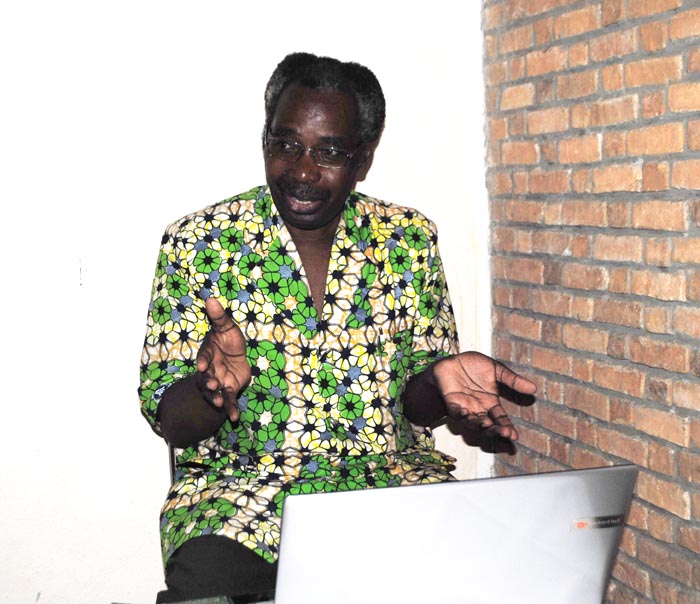Two kinds of Artemisia such as Artemisia Annua and Artemisia Afra are now proved that they can cure malaria. Albert Mbonerane, the Chairperson of the Association Fighting Against Malaria (ALUMA) gives us more information.-Diane Uwimana

Albert Mbonerane: “We have researchers, the Medicine Faculty at the University of Burundi, why don’t we dare and use this plant to cure definitively this disease?” ©Iwacu
“In the world, every 20 seconds, a child of less than 5 years old dies of malaria. Within 24 hours, it’s more than 4,000 children who die,” alerts Albert Mbonerane, Chairperson of ALUMA. The plant Artemisia annua has been being used for thousands of years in China, says Mbonerane, and Artemisia afra used from Cape Town (South Africa) to Addis Ababa (Ethiopia). “They are very effective against malaria”, adds Mbonerane. These plants, he notes, strongly stimulate the immune system and are effective against dysentery, parasites, and viruses: “they almost grow everywhere in the world in general and in Rumonge, Muramvya and Gitega Provinces in Burundi in particular.”
But these plants are not yet allowed to be used in the country even though they grow inside the country. However, he indicates that it is already proved by some researchers that a simple tea from the plant would make miracles of about 95% of healing while respecting a dose of 7 days. He notes that Artemisia is known for a long time by pharmaceutical industries. “They associate them with other molecules in the treatment”, points out Mbonerane. These plants (Artemisia) are used in DRC, Gambia, Cameroon and Uganda. “Their ministries of Agriculture and Public Health have promoted them closely with the World Health Organisation (WHO) to fight against malaria,” highlights Mbonerane.
“Fighting against malaria at any cost”
Since its creation in 2009, ALUMA has the main objective of fighting malaria at any cost, the disease for the poor people as Mbonerane says. Every adult people must make a contribution of BIF 400 to let children be treated freely. “If the government should promote these plants and avoid exporting malaria drugs, children and pregnant women will no longer die due to the lack of medicine. So, the country will have contributed to the fight against this disaster, says Mbonerane.
Therefore, WHO has declared in February 2014 that it is important to encourage and promote the traditional medicine; that’s the reason why it is necessary to develop these plants, notes the Chairman of ALUMA. “We have researchers, the Medicine Faculty at the University of Burundi, why don’t we dare and use this plant to cure this disease definitively?” It is worth mentioning that before a mosquito dies, it leaves behind it 150 births. “We always remember to protect us with mosquito nets but we forget to fight against the cause of those mosquitoes: avoid water streams near our houses. We must spray and sanitize our water for effective remedial solution to malaria,” concludes Mbonerane.



















 IWACU Open Data
IWACU Open Data

